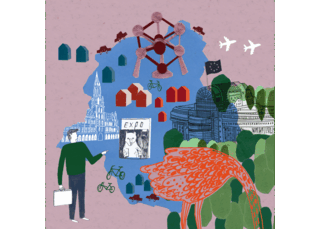EU institutions
The capital
For Brussels, the EU means above all one thing: plenty of jobs. What if "the capital of Europe", and with it cities like Luxembourg or Strasbourg, were suddenly without EU institutions?
By Eric Bonse, Brussels

But what would Brussels, the "capital of Europe", really be without the European Union and its institutions? The tourist office has investigated this question, with astonishing results. They suggest that the EU has long been indispensable to the economy.
The European Union and other international organizations such as NATO secure 121,000 jobs and an annual turnover of five billion euros, according to a study published in 2015. Overall, Europe is responsible for around 17% of all jobs in Brussels.
This is not surprising, considering that, in addition to the 32,000 officials of the European Commission and 751 members of the European Parliament, there are thousands of diplomats, lobbyists and journalists. Most not only work in Brussels, but also live there or in the surrounding area.
For the economy the EU meetings are an important stimulus
Brussels is not an isolated case. The Council of Ministers meets regularly in Luxembourg, and the European Parliament moves to Strasbourg once a month. In election campaign season, this is often referred to as an expensive "traveling circus". For the economy, however, the EU meetings are an important stimulus.
The popularity of the EU institutions has been demonstrated since the Brexit referendum: half of Europe applied for the European Medicines Agency and the Banking Supervision, which have had to move out of London. In the end, Amsterdam and Paris won the contract, by lottery. Because no EU country wanted voluntarily to forgo being the home to these lucrative administrative bodies.